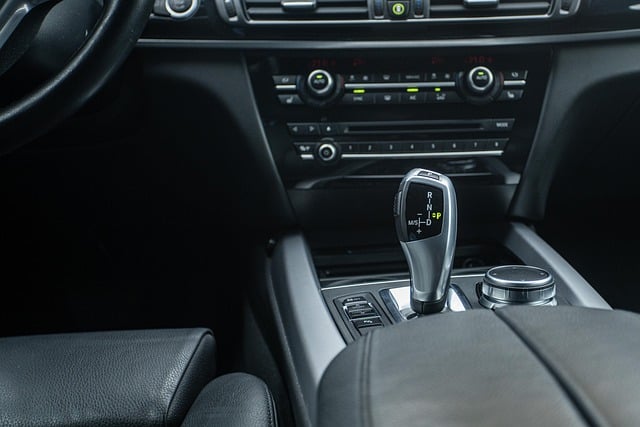Maximizing Your PCP Claim: A Guide to Handling Excess Mileage in the UK
To effectively manage Personal Contract Purchase (PCP) agreements and potential excess mileage in t…….

To effectively manage Personal Contract Purchase (PCP) agreements and potential excess mileage in the UK, understanding your contract's terms and conditions is paramount. Eligible PCP claimants can reclaim VAT by meeting specific criteria such as affiliation with charities or academies. The process involves filing a PCP claim with HM Revenue & Customs (HMRC) and providing necessary documentation. It's crucial to estimate your annual mileage accurately to avoid unexpected charges for excess mileage, which are outlined in your contract's 'Summary of Key Information' or 'Finance Agreement Schedule.' When facing potential overage, contact your finance provider immediately for guidance on the PCP claims UK process and required paperwork. The finance company will validate your claimed mileage, either through a physical inspection or electronic means, and you may be subject to additional charges or eligible for a partial refund based on their records. At the end of your PCP agreement, be prepared to settle the contract with the agreed settlement payment, minus any excess mileage fees. The PCP claims process involves submitting an accurate odometer reading, signed settlement form, V5C, proof of insurance, and any additional documents as required by your finance provider. If your claim is approved, you will be informed of any additional amount to pay for the car. Keep all records of correspondence and payments for future reference and ensure a smooth PCP claims experience in the UK by following these steps.
When navigating the complexities of car finance, understanding the intricacies of PCP (Personal Contract Purchase) claims is crucial. This article demystifies PCP excess mileage claims within the UK context, offering clarity and guidance on how to manage potential overages. We’ll explore the significance of PCP claims in the broader financial landscape of car ownership and provide a step-by-step approach to successfully submitting your claim. Whether you’re a first-time car buyer or an experienced finance user, this piece will equip you with the knowledge necessary to handle any excess mileage scenarios with confidence.
- Understanding PCP Claims and Their Significance in Car Finance
- Navigating the Process of Making a PCP Excess Mileage Claim in the UK
- Key Considerations and Steps for Submitting a Successful PCP Mileage Claim
Understanding PCP Claims and Their Significance in Car Finance

When navigating car finance options in the UK, PCP claims hold a prominent place due to their structured nature and potential savings for drivers. PCP, or Personal Contract Purchase, is a popular financing method that allows individuals to pay for a car over an agreement term, after which they have the option to return the vehicle, purchase it outright, or trade in for a new model. Understanding PCP claims is crucial for consumers to maximize the benefits of this financial arrangement.
PCP claims often refer to the potential to claim back VAT on your PCP agreement if you are entitled to VAT relief, such as being a charity or an academy. This can significantly reduce the overall cost of the car for eligible individuals. The process involves submitting a PCP claim through HM Revenue & Customs (HMRC) in the UK, providing evidence of your VAT status and the finance agreement. It’s important to note the specific conditions and eligibility requirements for making a PCP claim under this scheme. Additionally, understanding how mileage impacts the final cost at the end of the contract is another aspect of PCP claims that car finance consumers should be aware of. Excess mileage beyond the agreed upon in the contract can lead to additional charges, so accurately estimating your annual mileage is a key factor in managing the overall costs associated with PCP financing.
Navigating the Process of Making a PCP Excess Mileage Claim in the UK

When leasing a Personal Contract Purchase (PCP) vehicle in the UK and you’ve driven beyond the agreed mileage limit, navigating the process for making an excess mileage claim is essential. This situation can result in additional charges, as per the contract terms. To initiate a PCP claims process, first, review your original PCP agreement to ascertain the exact excess mileage fee specified. Typically, this information is outlined in the ‘Summary of Key Information’ or the ‘Finance Agreement Schedule.’ Once you’ve identified the potential overage cost, contact your finance provider directly. They will provide guidance on how to proceed with your PCP claim, including any necessary forms or documentation that substantiates your mileage records. It’s advisable to submit this promptly after realizing the excess mileage to avoid further charges. Upon receiving your claim, the finance company will assess the mileage of the vehicle via a process known as ‘mileage validation.’ This usually involves a physical inspection or an electronic check using the car’s onboard computer system. If the agreed mileage is indeed exceeded, you’ll be charged for the excess based on the pre-agreed rates. However, if there’s a discrepancy in their records or the mileage recorded is less than what you’ve claimed, you may be entitled to a partial refund. Throughout this process, it’s important to maintain clear communication with your finance provider and keep all correspondence for your records. PCP claims UK-based can vary by lender, so understanding the specific terms of your contract and acting within them is crucial to successfully managing any excess mileage claim.
Key Considerations and Steps for Submitting a Successful PCP Mileage Claim

When navigating a PCP claims process in the UK, it’s crucial to understand the specific terms and conditions associated with your Personal Contract Purchase (PCP) agreement. Key considerations include the initial agreement mileage limit, the actual mileage you’ve driven since acquiring the vehicle, and the final settlement figure based on the car’s anticipated value at the end of the contract term. To ensure a successful claim, meticulously document your mileage throughout your PCP term, as this will be a cornerstone of your claim submission. Upon reaching the end of your agreement, review the agreed excess mileage charge stated in your original contract. This charge applies for each mile you’ve driven beyond your contracted limit and is typically calculated at a set rate per mile.
To submit a PCP mileage claim, start by accessing the PCP claims section provided by your finance company. You’ll need to complete an accurate odometer reading to determine the total mileage and excess mileage. Accuracy here is paramount, as discrepancies can lead to disputes or additional charges. Along with the mileage figure, provide a completed and signed PCP settlement form, your vehicle registration certificate (V5C), proof of insurance, and any other documents required by the finance company. Submit these along with the agreed settlement payment for the car, minus the excess mileage charge. Once submitted, the finance company will assess your claim and, if approved, will notify you of any additional settlement amount due. Remember to keep records of all correspondence and payments made throughout this process, as they may be necessary for reference or in case of queries.
When managing Personal Contract Purchase (PCP) agreements, navigating the terms and conditions is crucial. Understanding how excess mileage affects your final payment and overall deal is essential within the context of UK car finance. This article has demystified the process of submitting a PCP excess mileage claim, highlighting the key considerations and steps necessary for a successful claim submission. By adhering to the outlined guidelines, vehicle owners can effectively manage their PCP contracts and avoid potential pitfalls related to mileage overages. It’s advisable for car finance users to stay informed about their PCP claims in the UK to ensure they are making the most of their agreements. With this knowledge, drivers can confidently handle their PCP claim obligations and maintain control over their car financing experience.







